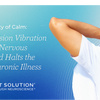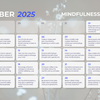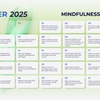Holistic Medicine For Mental And Emotional Health: A Beginner’s Guide

Holistic Medicine For Mental And Emotional Health: A Beginner’s Guide
The body has a self-healing ability; however, most people deprive their body of this ability by primarily focusing on medication as a solution for most illnesses. Holistic medicine is changing this mindset by taking a whole-person approach to wellness and medical care.
If you're looking for a way to improve your wellness and health, holistic medicine is a great place to start. If you've attempted various treatment methods, but your efforts ended in vain, consider giving holistic medicine a try. Holistic medicine focuses on the whole person, mind, body, and soul, and you'll enjoy plenty of benefits. You can check out establishments like The Center For Functional Medicine to see what kinds of treatments are available for mental and emotional health.
And to help you understand better what exactly holistic medicine entails, this article serves as a beginner's guide.
What is Holistic Medicine?
Holistic medicine is an approach to health and wellness that focuses on body, mind, and soul along with the environmental qualities of your everyday living. This approach acknowledges the interconnectedness of the mind, body, and spirit. The whole approach is based on the idea that the whole system comprises interdependent parts. For instance, the earth's ecosystem comprises forests, air, plants, animals, and water.
And for life to continue flourishing on earth, all these aspects must be in harmony. Therefore, if something occurs and affects one of these aspects, the effect will be felt throughout the ecosystem. Similarly, our body comprises connected, interdependent parts that need to be in harmony to flourish.
Holistic medicine mostly relies on an individual's informed and mindful choices, education, self-study, and way of life that's in sync with nature. The holistic medicine approach is designed to support an individual's healthy way of life as a whole.
Health and healing require an individual's choice, commitment, and observation. Such an approach allows you to understand your experience and learn things that are effective, those that exacerbate your symptoms, and those that nourish you as a whole. Understanding and mastering the basics of holistic medicine can help you improve your health and heal with mindfulness while guiding you strongly throughout the quest.
Benefits of Holistic Medicine in Mental and Emotional Health
The primary cause of suicide is often related to mental and emotional health; fortunately, you can overcome this issue with the help of holistic medicine. Below are the benefits of holistic medicine in mental and emotional health:
- Holistic medicine offers self-help techniques that are responsible for enhancing self-empowerment and care. These techniques help you to become independent at the end of your treatment.
- Holistic medicine offers an array of treatment options, and your physician can combine these treatment options to offer a better result when it comes to mental and emotional health.
- Holistic therapy is relatively easy and cost-effective to incorporate into your lifestyle. Given these characteristics, such therapy is ideal for addressing the root cause of depression and anxiety. The technique addresses the symptoms rather than treating them, making it ideal for combating mental and emotional health.
- The holistic medicine approach allows you to identify triggers responsible for causing mental and emotional damage and avoid them to help improve your overall health.
What Are The Principles of Holistic Medicine?
Primarily, holistic medicine focuses on a whole-person treatment plan, focusing on the mind, body, and soul while taking into account mental and emotional factors and the disease's physical symptoms. Holistic medicine principles are based on the human body and the ability to self-healing. This treatment approach utilizes modern medicine and traditional approaches to treat mental, emotional, and physical symptoms of distress.
Holistic medicine pursues a high level of balance and functioning in human experiences. These include mental, physical, emotional, social, and spiritual conditions. Balancing these aspects will result in a healthy and happy state of living. Here are the principles of holistic medicine you need to know:
- Love. The treatment is performed with respect, kindness, grace, and acceptance.
- Whole-person. According to holistic medicine, you need to rely on your mental, physical, and spiritual health to achieve true well-being.
- Willingness. Holistic medicine relies on your ability to be open, learn, explore, and understand some unfamiliar areas.
- Cooperation. Physician and patient care rely on autonomy, insight value, and the needs of both parties.
- Inherent healing. According to holistic medicine, human beings possess an innate power for self-healing. A holistic physician facilitates this process through treatment and mindful study.
- Prevention. Wellness is maintained through prevention. You're required to limit lifestyle behaviors that harm you, which is considered the first step to disease prevention in holistic medicine. Diet, regular exercise, and mental health are vital in creating positive energy flow in your body to prevent inflammation and imbalance.
- Customization. Holistic medicine offers customized treatment plans. This plan is based on your genes, social circumstances, temperaments, family history, and mental health, among other individualized aspects.
- Integration. In addition to assessing your symptoms and making changes in the contributing aspects, holistic medicine resolves the underlying cause of your symptom. This practice can also combine the use of traditional medicine.
What Are The Holistic Medicine Modalities?
There are various modalities in holistic medicine, and they include the following:
Considered one of the world's oldest medicine systems, Ayurveda is of Indian origin and has been used for over a thousand years. Thanks to its effectiveness, it has evolved and gained popularity across the globe. It's considered a complementary medicine because it treats patients as a whole via various health lenses.
Today, holistic physicians use Ayurveda to treat conditions such as diabetes, asthma, cancer, and arthritis. This medical system encompasses philosophical, ethical, psychological, physical, and spiritual health. Furthermore, it promotes the body's self-healing ability through the mind, body, and soul approach while using herbal remedies to treat specific conditions and illnesses.
This science-based healing approach works by identifying and treating the root cause of infections. Every diagnosis and symptom can be the reason for various contributing factors to your overall wellness and health.
Functional medicine physicians usually compile lab tests to identify and develop a treatment plan for a specific condition. When working with a functional medicine physician, you'll receive dietary and lifestyle guidelines in the form of beneficial supplements, healthy eating, stress management, sleep support, hormonal health, mind/body practices, and exercise protocols.
Acupuncture is over 3,000 years old and originated in China as a part of Chinese traditional medicine. This practice is based on the meridians' complex body (body's energy highway) where qi (energy) flows. Meridians are channels or pathways connected to different body systems carrying blood and other body fluids.
This practice involves using needles, pressure points, and suction cups on specific meridian locations on the body. The process activates and strengthens meridians to improve your vitality and overall well-being.
This holistic medicine modality focuses on the essentials of food and nutrition in an individual's overall well-being and health. In this modality, holistic medicine focuses on using food as medicine. As they say, 'let food be your medicine and medicine be your food.'
Nutrition therapy looks primarily at an individual and comes up with a dietary plan that matches their current health status and bio-individuality. The specific and unique dietary needs are based on various essential aspects and variables such as genetic lineage, climate, daily activities, and environmental stressors.
This is the most well-known holistic medicine modality. Chiropractic treatment involves chiropractic adjustments, where a chiropractor carries out spinal manipulation. Using controlled pressure to release and move joints, a chiropractor manipulates joints and soft tissue to activate support and reduce inflammation and pain while improving nerve function and relieving pressure.
What Are The Advantages of Holistic Medicine?
Humans have been using holistic medicine for years to promote wellness and healing. Holistic medicine is vital in correcting deficiencies, promoting good health, and balancing your body system. You can use holistic medicine in treating an array of health conditions.
Holistic medicine offers treatment plans for various conditions, including depression, anxiety, insomnia, chronic pain, back problems, early cancer stages, lupus, and Lyme disease, to name a few. For instance, acupuncture can treat anxiety, boost focus, improve mood, and treat chronic pains and aches.
Other key advantages of holistic medicine are:
The primary goal of holistic medicine is to improve patients' health while increasing their awareness of potential health conditions and preventing the development of such illnesses. Holistic medicine achieves its goals by encouraging and empowering patients to change their unhealthy lifestyle that contributes to or can lead to their health condition. Holistic medicine physicians guide patients on various immune-boosting strategies and approaches to help improve their health.
According to conventional medicine, the disease is considered separate from individual suffering; however, this isn't the case in holistic medicine. In the holistic medicine approach, a physician emphasizes whole-body treatment. This means the treatment involves treating the disease in the patient's body as well as emotional and spiritual health.
Unlike conventional medicine, holistic medicine utilizes natural methods and resources in treatment. A holistic physician uses natural herbs, medicine, and other natural methods in a treatment plan. The plan includes exercise, nutrition, detoxification, and other non-invasive natural remedies. Natural remedies are known to be effective, offer fewer side effects, and are free of toxins.
Did you know stress can exacerbated 90% of diseases? Managing your stress is a great way to help yourself live a healthier lifestyle. One holistic approach is wearables stress relief devices. TouchPoints are one wearable stress relief that offers a non-invasive way to destress at the push of a button. They use gentle, alternating vibrations to turn off your fight-or-flight response.
Takeaway
Holistic medicine is a great approach to enhancing your well-being, health, and your life. The holistic approach is ideal for treating mental and emotional problems such as depression, anxiety, bipolar, and eating disorders. With this approach, you'll also feel more integrated, balanced, and engaged in your healing and health than ever before. Holistic medicine is an approach worth exploring and can have life-changing effects.
Trying out something new can be relatively uncomfortable, especially when you don't know what to expect. This is not the case with holistic medicine because it offers great results, making it worth undertaking. If you're looking for effective methods of managing pain and promoting healing, this guide has explained all you need to know about holistic medicine.
Jennifer Morris
Jennifer Morris is a yoga instructor and an advocate of holistic medicine. She also spends part of her time writing and talking about mental health through blogs and webinars. Her hobbies are baking and gardening.




